Cooking Outdoors: 18 Tips for the Best Results
Cooking outdoors can be just as straightforward as using your grill at home, when you’re properly prepared.
I wanted to go into some of the best tips for outdoors cooking to inspire your recipes and creations. There’s nothing better than warming food after an adventurous day, so let us help you be prepared and whip up a storm.
There are lots of options when it comes to campsite cooking!
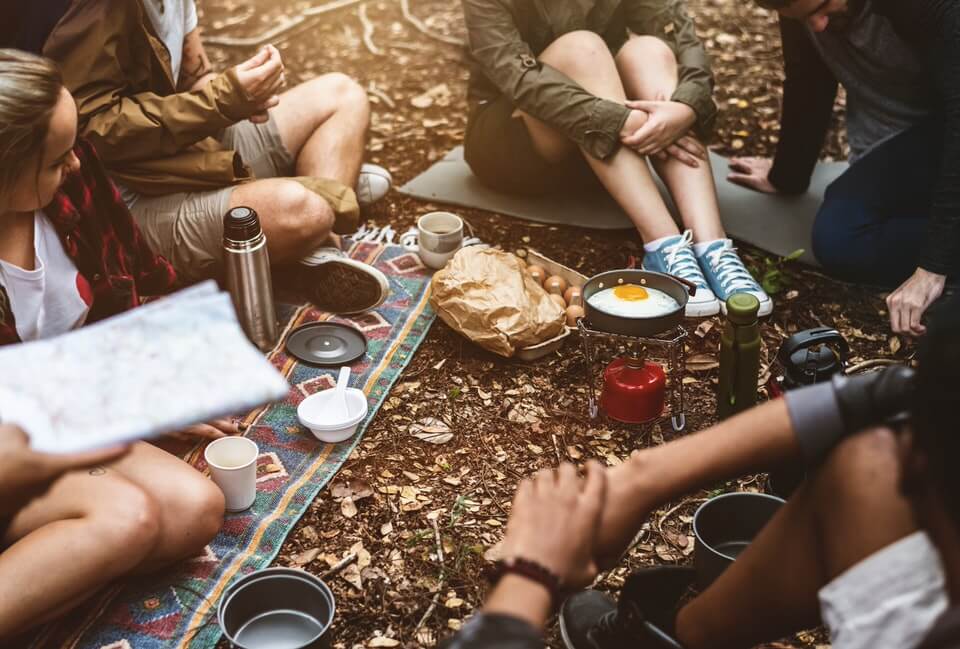
Cooking outdoors: prep at home
The best piece of advice we can offer when it comes to cooking outdoors, is to prep at home as much as possible. You could create a meal plan and pre-portion meats and veggies, or even bake some things ahead of time to be heated on the campfire later. Alternatively, look for a healthy food delivery to your door to save your time.
One of our favourite tricks is pre-portioning and freezing meat for storage. The frozen meat will help keep the rest of your food cold without ice, and having things pre-portioned makes prep far easier.
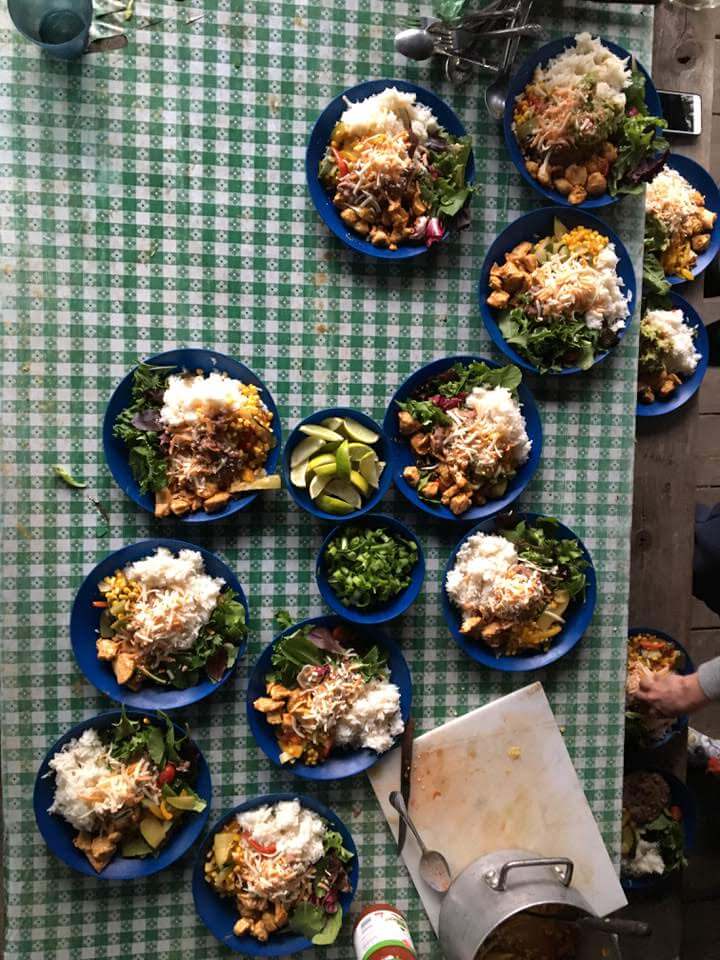
Outdoor cooking: take cookware
If you’re backpacking and wild camping, you might be reluctant to fill your already-heavy backpack with bulky cookware. But, when you’re in the great outdoors with no easy access to shops or a kitchen, having the right cookware will definitely be worth a few extra kg!
If you can, take a small pot and / or a saucepan for cooking outdoors when you’re backpacking. You can choose the best portable grill here.
If you’re camping, and you’ve arrived in a car (like we did when we went road tripping in Norfolk), then cast iron is the way to go. With a resilient design that’s built to last, cast-iron can be used on almost any heat source, so you can stick it on top of the campfire without fear. Would’ve been great when I was camping in Canada, for the South African Brai we decided to cook.
If you can, it’s a great idea to pack a cast-iron pan for eggs and meats, a Dutch oven for more hearty meals (you can even bake bread in it!), and a pie iron for delicious grilled cheeses.
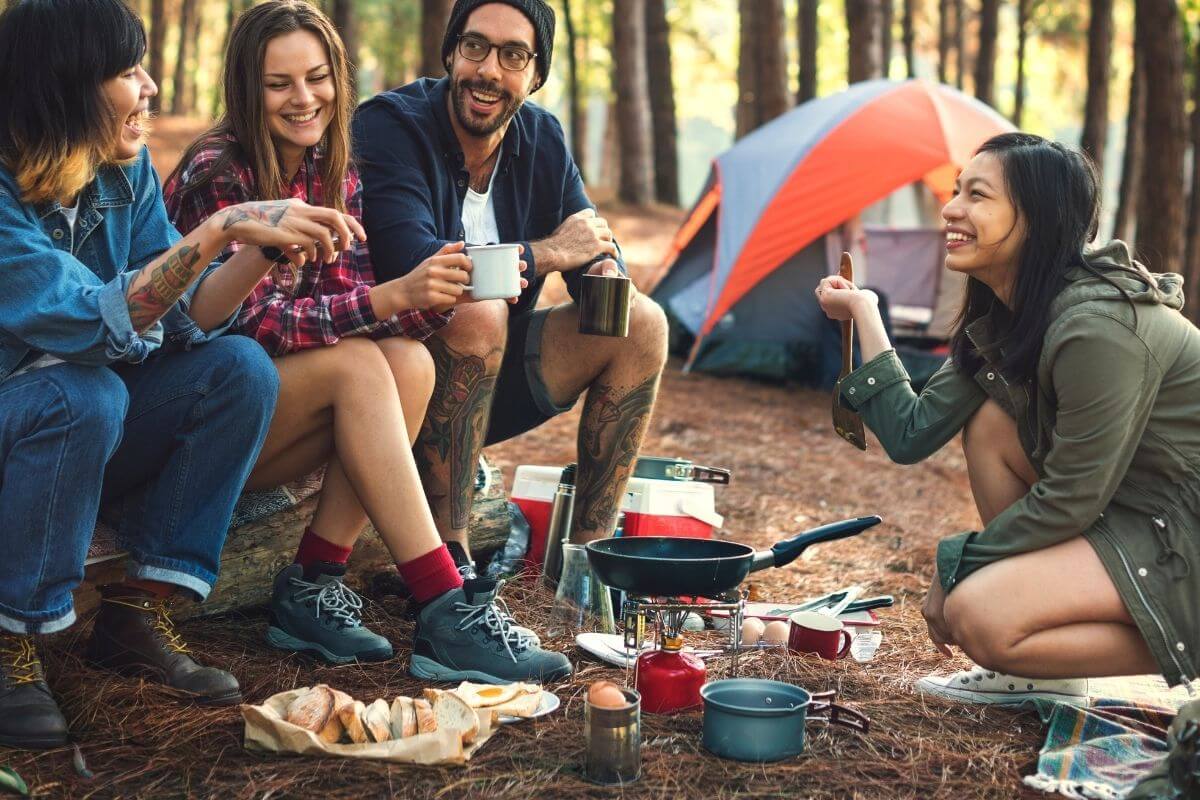
If you only get to choose one piece of cookware to pack, we would prioritise a quality cast-iron Dutch oven like this one, linked.
When I was camping in the Serengeti, our tour leader managed to make some great feasts on the fire.
Reusable plates, cutlery, and cups are also essential to a successful camping trip. We recommend insulated cups that can keep drinks hot or cold so you can use the same cup for your hot cocoa or cocktails.
It’s good practice in responsible travel to make sure everything you take, comes back with you, and that it can all be reused.
How well do you know camping?
Try this CAMPING QUIZ!
Separate dish washing supplies
Along with cookware, you’re also going to need to do the dishes. Keeping your dishwashing gear in the same place, separate from everything else, is a great hack to ensure you’re not fumbling around for soap in the dark.
Hot water also makes doing the dishes a lot more convenient as it helps break up food particles, so you might want to pop a pot of water on the fire while you cook so it’ll be ready when you finish eating.
For drying dishes when you’re cooking outdoors, the best trick we’ve found is to get an inexpensive mesh laundry bag and hang your dishes from a nearby tree to air-dry. This also keeps clean cookware out of the mud and dirt, ready for your next meal in your outdoor kitchen.
Learn how to build a fire
To be a proper camper, you’re going to need a roaring campfire, whether or not you intend to cook on it!
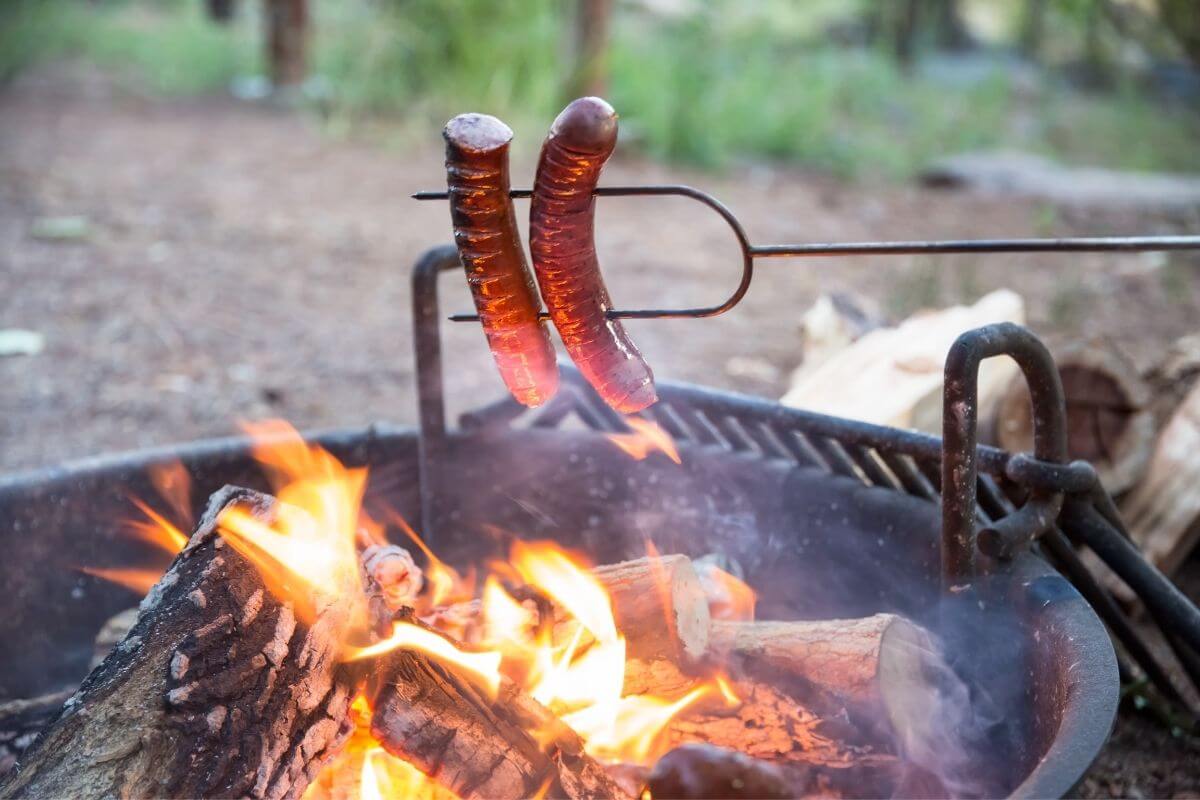
Learn how to build a fire before heading off, and don’t forget to check whether the park you’re visiting has any rules on collecting firewood.
In addition to firewood, it’s also a good idea to pack plenty of coals, long-length matches, and fire starters to help you get a kitchen-quality fire ready. It’ll make things so much easier when it comes to cooking outdoors.
Consider a camp stove
Some might consider it cheating, but camping stoves can make cooking in the great outdoors so much easier.
Many fold up to the size of a briefcase for easy storage and transportation, and they’re usually incredibly lightweight. You can get them even smaller too, which are great for backpacking camping – this is the camping stove I have.
It was great when I went wild camping in the Outer Hebrides.
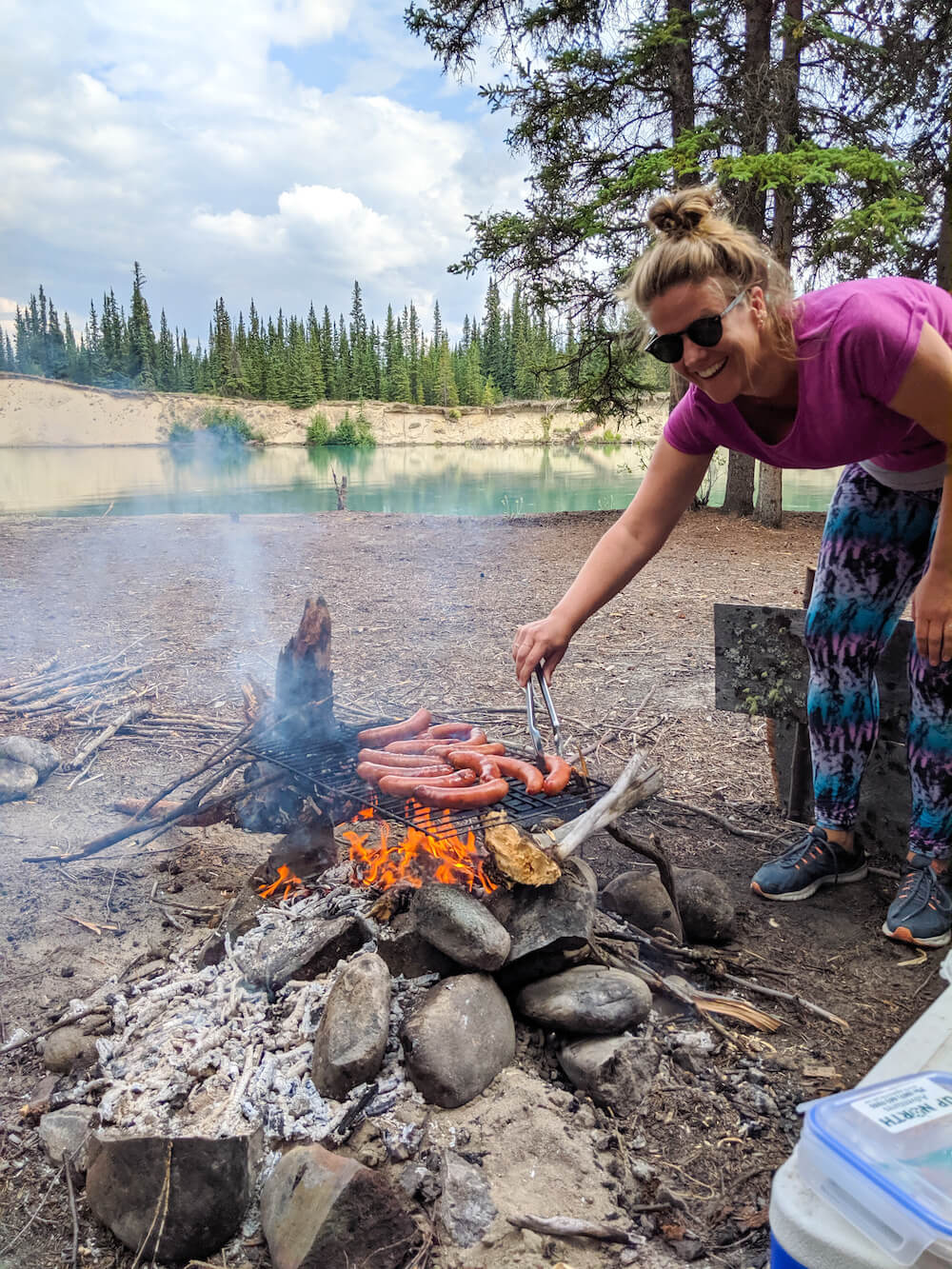
Also, a pair of tongs are one of the best outdoors cooking accessories you can buy.
If you’re going down this route, test your stove before you leave. Some have funny-shaped or sized rings that you’ll need to check your cookware fits on, and you should also check that you know how to light the stove and you’re bringing the correct fuel, with the correct attachment too.
Storing food cooking outside
Naturally, you’re not going to have a refrigerator with you while camping and cooking outdoors, so you’ll need to think about how to store food.
Pack plenty of dried foods such as nuts and other snacks. Many camping stores also sell freeze-dried meals that you just add hot water to, perfect for lightweight and convenient food solutions. Check out my list of the best food to take to festivals for some more inspiration for foods to take camping.
If you’re going for a more deluxe camping experience, you’ll probably need a cooler to keep your meats and veggies fresh. Pack your cooler sensibly to keep everything in tip-top condition. Remember, the cooler’s bottom will be the coldest part, so this is where you should store highly-perishable foods or anything you won’t need until the end of the trip.
When packing cool boxes, we like to freeze bottles of water instead of using ice. This leaves less mess in the cooler and allows us to enjoy fresh, cold water on hikes. Here are some recommendations for the top cool boxes on the market right now.
Leave No Trace
The Leave No Trace scheme encourages campers and outdoor enthusiasts to leave as little trace of their presence in the outdoors as possible. I first heard of ‘Leave No Trace’ thanks to Glastonbury Festival, but it seems a great philosophy for life.
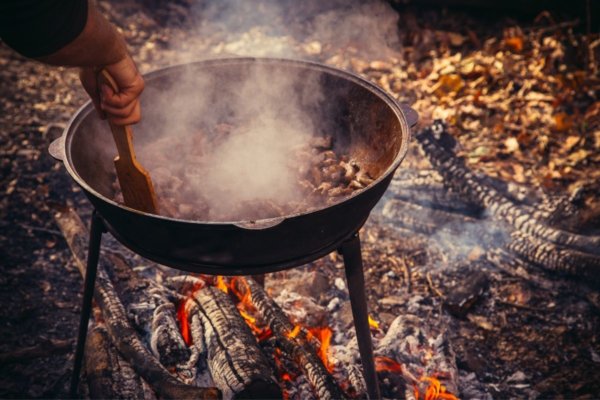
The idea of ‘Leave No Trace’ preserves the natural environment for other campers and ensures the water and wildlife are looked after.
Check out the official website for some tips on how to minimise your environmental footprint while enjoying the great outdoors, and be sure to always put nature first.
